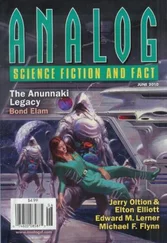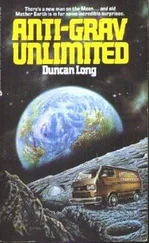Duncan Kyle - Whiteout!
Здесь есть возможность читать онлайн «Duncan Kyle - Whiteout!» весь текст электронной книги совершенно бесплатно (целиком полную версию без сокращений). В некоторых случаях можно слушать аудио, скачать через торрент в формате fb2 и присутствует краткое содержание. Год выпуска: 1976, ISBN: 1976, Жанр: Старинная литература, на английском языке. Описание произведения, (предисловие) а так же отзывы посетителей доступны на портале библиотеки ЛибКат.
- Название:Whiteout!
- Автор:
- Жанр:
- Год:1976
- ISBN:9780312868703
- Рейтинг книги:4 / 5. Голосов: 1
-
Избранное:Добавить в избранное
- Отзывы:
-
Ваша оценка:
- 80
- 1
- 2
- 3
- 4
- 5
Whiteout!: краткое содержание, описание и аннотация
Предлагаем к чтению аннотацию, описание, краткое содержание или предисловие (зависит от того, что написал сам автор книги «Whiteout!»). Если вы не нашли необходимую информацию о книге — напишите в комментариях, мы постараемся отыскать её.
Whiteout! — читать онлайн бесплатно полную книгу (весь текст) целиком
Ниже представлен текст книги, разбитый по страницам. Система сохранения места последней прочитанной страницы, позволяет с удобством читать онлайн бесплатно книгу «Whiteout!», без необходимости каждый раз заново искать на чём Вы остановились. Поставьте закладку, и сможете в любой момент перейти на страницу, на которой закончили чтение.
Интервал:
Закладка:
There was some talk, too, about flying an aircraft in when the weather dropped a little, but it was wild talk. All the weather prognostications were bad, though the lethal severity of the storm might ease a little in a few hours. There was a possibility that the winds on the cap might actually drop low enough to be on the Beaufort Scale within twenty-four hours but no possibility at all of flying weather. I learned that flying up to the cap has, in any case, its own particular additional dangers. A standard compass is all but useless, because when you're in Northern Greenland, magnetic North lies to the west and its influence on the needle is erratic. Then there's the little matter of altimeter readings, which are thoroughly inaccurate over deep snow, because the electronic impulses beamed at the ground penetrate the snow to indeterminate depths. In fact, it's pretty well impossible to judge altitude or distance with any accuracy. And on top of all that, sudden weather changes can blot out visibility entirely, or make sky and ground the same shade of grey or white, so that it's impossible to distinguish one from the other and there's no way to tell up from down.
'What it comes down to,' Cohen said wearily, 'is that flying's out, and I mean out, unless the pilot can see both the Trail and the horizon the whole damn way.'
'It also means,' Herschel said grimly, 'that the whole shebang could be finished for want of a two-thousand-pound payload.'
'Two thousand?' I said, as an idea struck me. From what I'd seen of those big generators up at Camp Hundred, they weighed a lot more than two thousand pounds.
Cohen nodded. 'Yeah. It's a smallermodel, lower output, too-'
Isaid, 'That weight's okay in the TK4.'
They looked hard at me and I felt a little like a doorstep salesman. So I behaved like one and started on the facts and figures. 'Furthermore,' I added finally, 'forty-knot winds won't hold me back. Nor will snow.'
They looked at one another. Herschel said, 'Two and a half thousand total payload, right?'
'Yes. Two thousand for the generator. Two hundred more for me and all the heavy clothing. There's room,' I said, 'for just one more inside. Ting, ting.'
Cohen and Herschel looked at me in puzzlement. 'English joke,' I said. 'Not very good. But the TK4's not an English joke, and she's very good indeed.'
They weren't used to light, fast machinery up there. Herschel had told me that Barney Smales believed in masses of steel and lots of power and so, basically, did all of them, probably rightly. The principle of meeting powerful onslaughts with powerful resistance is obvious sense, and the theory that says if you put a flyweight in the ring with a heavyweight, he may run away successfully for a while, but sooner or later, he'll be flattened, is also correct, almost all the time. But I was confident in the TK4. The run down to Belvoir had been so efficient that I had very little doubt of her ability to cruise back again in the right conditions. All I needed was a weather slot, about three hours long, and finally we got it. The decision to take the generator meant, of course, that other things must be left behind. Three, in fact: two human and one neoprene, and the final decision was not made by us, or by Cohen, but by Barney Smales on the radio from Hundred. The radio contact was a lot worse now. The signal quality seemed to bear no relation to weather conditions. During the worst of the storm, they'd come over sharp and clear, yet when the weather was easing, the contact was weak and loaded with mush. Still, it was enough for us to hear. At Hundred the short length of neoprene had been cleaned, more or less satisfactorily, and would suffice. But the diesel fitters, striving to cannibalize two unsatisfactory machines and assemble one good one, were having a very hard time. Barney wanted the generator. 'And George Herschel,' he said.
'Foster and Scott can wait at Belvoir.'
'Sorry,' I said. 'I'm bringing Scott.'
There was a pause. Then he said flatly, 'Bring Herschel, Mi Bowes. That's an order.'
'Which I'm disobeying,' I said. 'I want an experienced driver's eyes. I don't want to wander off the Trail. I'm bringing Scott or I'm not coming.'
He didn't like it. From that moment, I rather think he didn't like anything I did, but he was wrong and T, fortunately, wasn't in his army. Cohen and Herschel didn't like it very much, either, but they had the sense, and the grace, to accept my reasons. What they didn't like was my deliberate disobedience of direct orders.
Thule Air Base had done their best with the weather forecast. The weather observation aircraft patrolling the Eastern Greenland coast and the satellite weather survey both suggested there were a few hours ahead in which winds would slacken and the weight of snowfall lessen. So off we went. The brief daylight was over, the night black and moonless, the wind getting stronger as TK4 made the long climb out of Belvoir, up to the edge of the icecap. I stuck the two front skis down to counter any awkward gusts, warmed up the motors, and we belted off into the brutal darkness. If I have sounded overconfident, even a little flip, about the TK4's performance to this point, it's not because I'm a wild optimist or full of blind faith; it's because the TK4 is a damn good machine, beautifully designed, well built and thoroughly tested and modified until she's as good as we can get her. In spite of all that, I faced the hundred-mile dash across the icecap in a very sober mood indeed. Having spent a lifetime working with machines, I know very well that mankind hasn't yet succeeded in building one that won't break down, whether it's an electric toothbrush or a Rolls-Royce car. A good watch is probably the most reliable thing there is, but for all the dustproof, waterproof casings, the jewelled movements, the technical refinement, every watch can stop, and sooner or later it does. So, sooner or later, would the TK4, but not, I prayed, within the next hundred miles, or on the icecap with me or anybody else aboard. What happened was, I suppose, testimony to the power of prayer. We'd just passed the Mile Fifty marker, after about two hours on the Trail, when I found my vision disintegrating into a mass of little flickering lights, lightning-shaped, migraine-style. I told Scott about it and he made me stop and let the engines idle. When I'd done that, he had me lie back in my seat, head dangling over the seat back.
'Now,' he said, 'just close your eyes and concentrate on looking into your head. Try to see the inside of your skull.' I obeyed meekly. It didn't seem to be doing any good, though. Then I heard a lighter scrape beside me and smelt smoke, and a cigarette was placed between my lips. 'Smoke it,' Scott said. 'Don't let your eyes move till it's finished.'
So I smoked, and tried to imagine the inside of my head, and felt my eye muscles begin to ache. When I could feel the cigarette's heat on my fingers, Scott said, 'Okay. Now try opening your eyes.'
I did, and raised my head, and promptly felt dizzy. But when the dizziness cleared, after a couple of rather sickening minutes, my vision was clear, too.
'Thanks,' I said. 'Who thought that one up?'
'Folklore,' Scott said. 'Handed down driver to driver through the long, long generations. Sure works, though.'
'It sure does,' I said. And we were off again as soon as I'd retracted the TK4's feet. Five miles later we went past the Swing like a bee buzzing past a beetle, exchanging headlight greetings, but not stopping. The wind got up a bit more, and for the last twenty miles the TK4 took rather more holding straight. We veered a bit, but no more than we might driving on an exposed road in strong winds, and then the marker flags ceased to flow at us in a straight line, and guided us round the approach into Camp Hundred. The trip had taken three hours twenty minutes, including the stop for impromptu eye treatment, and I was feeling pleased with myself, the TK4 and the world in general.
Читать дальшеИнтервал:
Закладка:
Похожие книги на «Whiteout!»
Представляем Вашему вниманию похожие книги на «Whiteout!» списком для выбора. Мы отобрали схожую по названию и смыслу литературу в надежде предоставить читателям больше вариантов отыскать новые, интересные, ещё непрочитанные произведения.
Обсуждение, отзывы о книге «Whiteout!» и просто собственные мнения читателей. Оставьте ваши комментарии, напишите, что Вы думаете о произведении, его смысле или главных героях. Укажите что конкретно понравилось, а что нет, и почему Вы так считаете.












